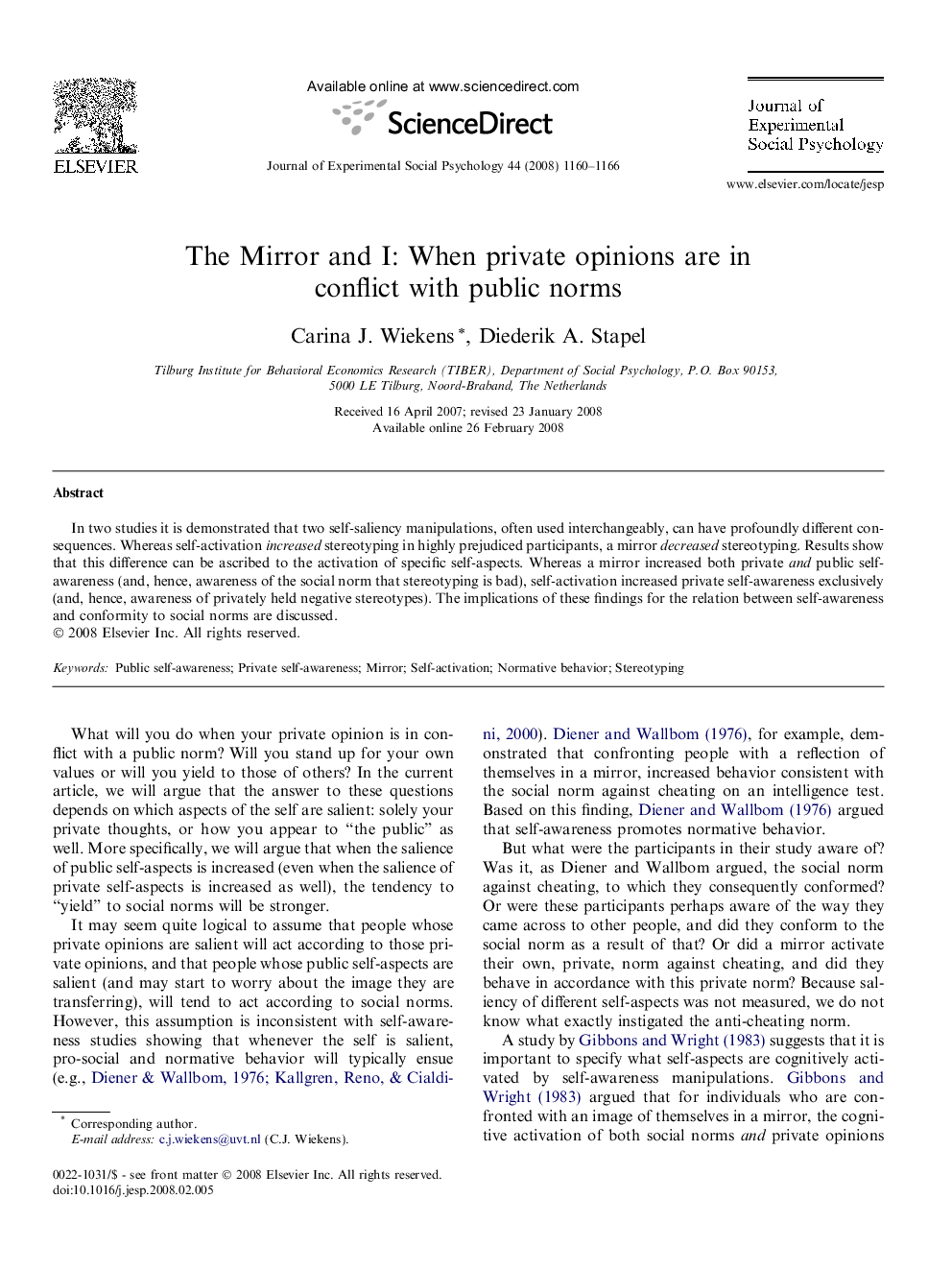| Article ID | Journal | Published Year | Pages | File Type |
|---|---|---|---|---|
| 10468632 | Journal of Experimental Social Psychology | 2008 | 7 Pages |
Abstract
In two studies it is demonstrated that two self-saliency manipulations, often used interchangeably, can have profoundly different consequences. Whereas self-activation increased stereotyping in highly prejudiced participants, a mirror decreased stereotyping. Results show that this difference can be ascribed to the activation of specific self-aspects. Whereas a mirror increased both private and public self-awareness (and, hence, awareness of the social norm that stereotyping is bad), self-activation increased private self-awareness exclusively (and, hence, awareness of privately held negative stereotypes). The implications of these findings for the relation between self-awareness and conformity to social norms are discussed.
Keywords
Related Topics
Life Sciences
Neuroscience
Behavioral Neuroscience
Authors
Carina J. Wiekens, Diederik A. Stapel,
